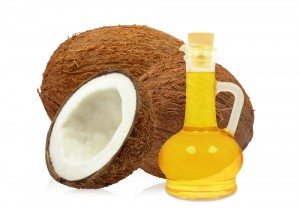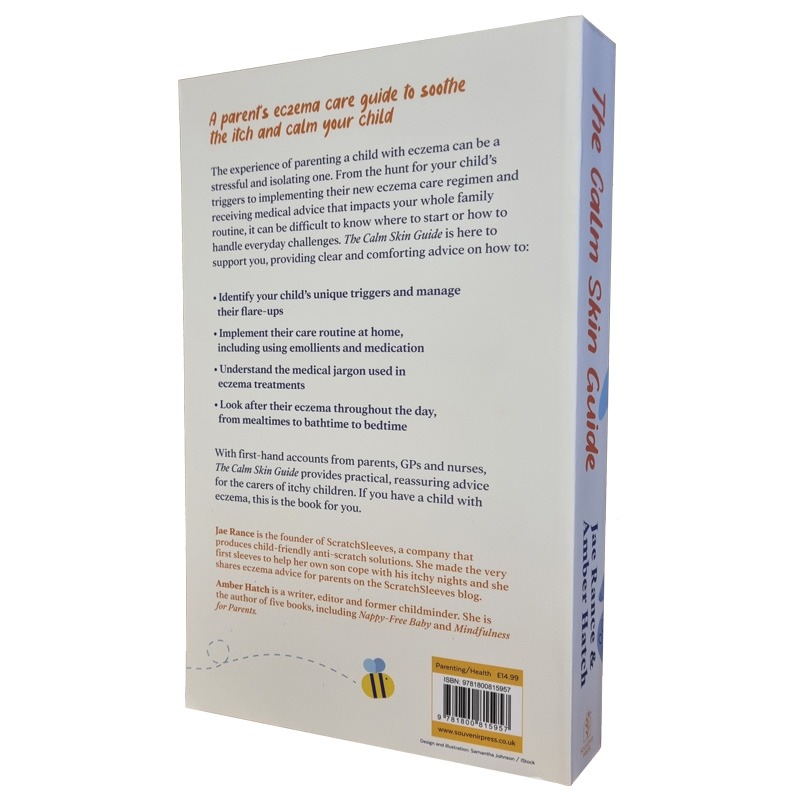Alternative eczema remedies # 1: Coconut oil



Coconut oil has been used for thousands of years and for many different ailments: from mouthwash to moisturiser! Recent research into coconut oil’s effectiveness has resulted in it becoming increasingly popular as an alternative remedy for treating eczema. One of the great attractions of coconut oil is its natural origin – but can it really be that good? The ScratchSleeves team delves into the benefits of using coconut oil for eczema, how to use it and its many other advantages.
Is coconut oil an effective eczema treatment?
Good question. Coconut oil is a saturated plant fat consisting primarily of medium and short-chain fatty acids. These fatty acid molecules are relatively small, so are readily absorbed through cell membranes.
In addition, these fatty acid molecules are not easily oxidized and so won’t create harmful free radicals. As a result of this composition, coconut oil is a really effective moisturiser for dry skin.
It also has proven antibacterial, antifungal and even anti-viral components meaning that as well as moisturising, coconut oil combats the infections responsible for much of the eczema itch. Coconut oil is also packed full of vitamins that help nourish the skin.
Is coconut oil good for eczema?
A study carried out in 2013 by The International Society of Dermatology looked at the effectiveness of coconut oil in treating eczema when compared to mineral oil. This double-blind randomised control study of 117 children was carried out over eight weeks. It found that coconut oil was markedly better in improving mild to moderate eczema than mineral oil. As similar mineral oils are used in most eczema emollients, coconut oil represents a very interesting alternative eczema treatment.
Recently, a study published in the Journal of Traditional and Complementary Medicine examined the anti-inflammatory and skin protective properties of virgin coconut oil. It found that not only did coconut oil bring anti-inflammatory activity, but it also improved the skin barrier function and protected against UVB radiation. The study concluded that virgin coconut oil could be useful in treating skin disorders with permeability barrier dysfunction, especially those accompanied by reduced epidermal protein expression, such as atopic dermatitis, eczema.
So, yes: there is strong evidence for coconut oil improving mild to moderate eczema symptoms (no trials testing its effectiveness on severe eczema have been published as yet) and reducing the bacterial activity which is thought to aggravate eczema. On this basis, we think that coconut oil is a very interesting natural eczema treatment that is definitely worth trying for your eczema child.
Coconut oil and skin infections
Another study of adult atopic dermatitis in 2008 found that applying coconut oil twice a day can decrease bacterial colonisation (staphylococcus aureus) by 95 per cent in eczema sufferers. This was compared to a 50 per cent reduction in the group using an olive oil control. This reduction was thought to be due to the presence of lauric acid in coconut oil. This is a fatty acid that is also present in breast milk. Lauric acid is a proven antibacterial and anti-fungal agent which is not present in olive oil. While coconut oil cannot cure eczema, it can help to soothe the skin, reduce irritation and itching, and lower the risk of skin infection.
It is well known that bacterial infection aggravates eczema, so these proven antibacterial properties of coconut oil must play an important part in its effectiveness in treating eczema symptoms. A 2014 scientific review concluded that coconut oil can effectively reduce the presence of bacteria, viruses, and fungi. This is significant because eczema sufferers can be more vulnerable to skin infections.
How to treat eczema with coconut oil
The studies mentioned above have used virgin coconut oil rather than refined coconut oil.
- Virgin coconut oil, (also called unrefined coconut oil) is oil that has been pressed from coconut meat and undergone no further processing.
- Unrefined coconut oil has higher levels of antioxidants than refined oils. Virgin coconut oils produced by traditional, cold-pressed methods have slightly higher levels again.
- Refined coconut oils can contain chemical residues from the processing, which could create sensitivity in certain skin types or conditions.
- One coconut oil product that should be avoided when treating eczema is liquid coconut oil (or MCT oil) as the antibacterial lauric acid is missing from this product.
It’s worth mentioning that coconut oil has a melting point of 24°C, so here in the UK it will be solid for the majority of the year. Obviously, this isn’t particularly useful when it comes to using the oil as a lotion. You can liquefy the coconut oil by adding around five to 10 per cent virgin sunflower oil to warm coconut oil or by putting a little bit on your hands and rubbing them together.
Apply organic coconut oil that’s labelled as either cold-pressed or virgin to slightly damp skin at least twice daily. This will help to keep the skin moisturised and reduce the likelihood of inflammation.
How to use coconut oil for eczema
Coconut oil can either be applied directly to the skin or used in cooking. When treating children, the topical application of cold-pressed coconut oil can be a more practical approach as you need to consume 2-4 tablespoons a day for it to be effective.
For mild to moderate eczema, apply a light coating of virgin coconut oil to the affected skin twice a day.
For severe eczema, apply a generous amount of coconut oil to a bandage and wrap around the affected area and repeat up to four times a day.
You can also use coconut oil as a lubricant for baby massage – which can be a great way to help itchy little ones sleep.
We find that homemade coconut oil soap (as made by Grandma ScratchSleeves) is a really practical way of incorporating coconut oil into our daily routine – and it’s brilliant for Grandma’s eczema-prone hands.
Advantages of using coconut oil for eczema
Coconut oil does more than treat eczema. It’s also great for hair and nails. Some of the other benefits of coconut oil include:
- Smells lovely
- Antioxidant effect so will keep healthy skin looking younger
- Nourishes skin with vitamins and minerals
- Anti-bacterial and anti-inflammatory properties
- Adds shine to the hair (and discourages head lice!)
- Excellent makeup remover (for the adults, of course!)
- Totally natural – no chemicals
There are many other health benefits associated with coconut oil including improving or even reversing the effects of Alzheimer’s, type 1 and type 2 diabetes and hypothyroidism. This is a great website for more information about coconut oil.
Allergy advice
In spite of their name, coconuts are not nuts at all. Coconuts are actually seeds and are very different from peanuts or tree nuts. While it is possible to be allergic to coconuts, this is such a rare allergy that testing for it is not routinely carried out, even in people with other nut allergies. However, coconut can cause contact allergic dermatitis. As with any contact dermatitis, an itchy blistering rash may arise a day or two after contact with the allergen, and take several days to clear.
A note of caution
As with all things eczema related, it is wise to patch test in a small area first to test for allergic reaction. Be sure to talk to your GP or dermatologist about any alternative eczema remedies you are using.
Read more about the effectiveness of alternative eczema treatments in our blog post here.
Our sources
- The effect of topical virgin coconut oil on SCORAD index, transepidermal water loss, and skin capacitance in mild to moderate pediatric atopic dermatitis: a randomized, double-blind, clinical trial. MT Evangelista, F Abad-Casintahan, L Lopez-Villafuerte, International Journal of Dermatology. 2014 Jan;53(1)
- Novel antibacterial and emollient effects of coconut and virgin olive oils in adult atopic dermatitis. Verallo-Rowell VM1, Dillague KM, Syah-Tjundawan BS, Randomized Controlled Trial – Dermatitis. 2008 Nov-Dec
- The Properties of Lauric Acid and Their Significance in Coconut Oil. Fabian M. Dayrit. November 2014 https://doi.org/10.1007/s11746-014-2562-7
- In vitro anti-inflammatory and skin protective properties of Virgin coconut oil. Journal of Traditional and Complementary Medicine. Sandeep R. Varma, Thiyagarajan O. Sivaprakasam, Ilavarasu Arumugam, N. Dilip, M. Raghuraman, K.B. Pavan, Mohammed Rafiq, Rangesh Paramesh. January 2019. ISSN 2225-4110 https://doi.org/10.1016/j.jtcme.2017.06.012.
Other Alternative Eczema Remedies
Our Editorial Policy
Here at ScratchSleeves, we aim to bring you trustworthy and accurate information. We collaborate with qualified dermatologists and doctors as well as drawing on peer-reviewed medical studies and our own experience as parents. All medical content is reviewed by a dermatologist or appropriate doctor prior to publication to ensure completeness, accuracy and appropriate use of medical language. Reviewer details can be found at the bottom of each reviewed post and also on our ‘Meet The Team’ page.
All scientific research referred to in our blog is found in peer-reviewed publications. All eczema related medical articles we refer to are included in the GREAT database (Global Resource of Eczema Trials) managed by the Centre of Evidence Based Dermatology at the University of Nottingham. This database brings together information on all randomised control trials and systematic reviews of eczema treatments. Trials are identified using a highly sensitive, comprehensive search strategy that is compatible with standard Cochrane methodology. Cochrane is internationally recognised as the highest standard in evidence-based health care. Links to the publications we refer to are listed at the bottom of each article.
Disclaimer
The original editorial information we provide is not intended to be a substitute for professional medical advice, diagnosis, or treatment. Always seek the advice of your doctor or other qualified healthcare practitioners regarding a medical condition. Never disregard professional medical advice or delay in seeking it in because of anything you have read on the ScratchSleeves blog.
As well as sharing our experience of bringing up an eczema child (and favourite allergy-friendly recipes), ScratchSleeves also manufacture and sell our unique stay-on scratch mitts and PJs for itchy babies, toddlers and children. We now stock sizes from 0-adult in a range of colours. Visit our webshop for more information.
The Calm Skin Guide
Love our blog? It's also available in book format with:
- First hand accounts from parents & medical professionals
- Easy navigation
- Comprehensive index
- Additional material
Signed copies available at no extra cost
Written by:
Interesting article? Don't keep it to yourself...
Read next...
You may also find helpful...
Quick buy


Multi Buy Discount

Spend between £30 - £60 and save 5%
Spend between £60 - £120 and save 10%
Spend over £120 and save 15%
Discount automatically applied at checkout
No Quibbles Guarantee

ScratchSleeves abide by a no quibbles guarantee.
Free UK Postage

Free packing and postage on all UK orders. For overseas orders to Europe postage is from £3.50, to USA is £6.50 and to the rest of the world, from £3.75.






